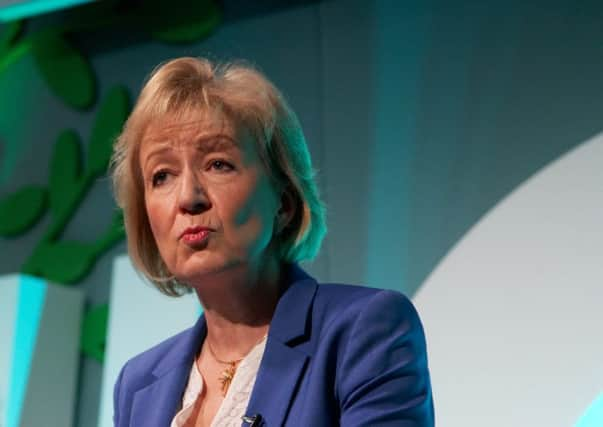While Sir Ivan Rogers acts, Andrea Leadsom dodges issues
This article contains affiliate links. We may earn a small commission on items purchased through this article, but that does not affect our editorial judgement.


For despite the OFC attracting the top parliamentarians likely to be involved in fighting agriculture’s corner, nary a hint nor a clue was given as to what the UK government was planning to set as its negotiating objectives for the UK’s relationship with the EU after Brexit, nor was there any suggestion of where its priorities might lie.
In her main address, environment, food and rural affairs secretary Andrea Leadsom was adept at dodging the issue, with any open questions on the negotiating stance being deftly deflected, while direct inquiries into the approach to specific issues were given a “too early to say” reply.
Advertisement
Hide AdAdvertisement
Hide AdIndeed the only questions to which she gave a confident, positive “absolutely” reply was a query as to whether she believed that Defra had the right resources to negotiate a good deal for UK farming.
It was telling, though, that when the audience was asked who shared the secretary’s confidence it was only Leadsom’s junior minister, George Eustice, who put his hand in the air.
However, the environment secretary couldn’t have been accused of holding back in her efforts to pull every crowd-pleasing platitude out of the hat.
These came in the shape of promises to cut red tape, to secure the best deal possible for UK farmers, to end the three-crop rule, and to do away with “existential” debates to determine what counted as a bush, a hedge, or a tree.
But by the end of her session there was still absolutely no indication of the overall negotiating stance to be taken in the Brexit discussions.
However, while much of the rest of the conference served to highlight the fact that everything – including the all-important shape of farm support requirements – hinged on the future trading arrangement deal which could be thrashed out, Leadsom would only say that this would form part of the industry-wide consultation which she was set to launch “in the near future”.
This consultation would form the basis of two green papers – one for maintaining the health of the farming sector and the other for the shape of environmental regulation as the post Brexit world approached.
On the future shape of domestic farm policy after Brexit, it was left to Eustice to give some tentative hints as to the likely direction of travel after the fabled consultation.
Advertisement
Hide AdAdvertisement
Hide AdAnd, as would be expected, he extolled the virtues of a move away from any form of area-based production support similar to that provided under the current Pillar 1 direct support measures – which he described as area payment with environmental conditions “tacked on”. He proposed instead that support for “innovation” together with payments for ecosystem services would be the best way to target payments to active farmers.
And it would appear that such payments, along with risk management tools and crop insurance measures – to help farmers “when things went badly wrong” – are likely to form the basis of what he stressed would be a UK-wide farm support system.
Although Eustice admitted that there should be “discretion” for the devolved administrations to do things somewhat differently, he took pains to emphasise that an over-arching and coherent UK-wide framework would be required in the future – complete with safeguards to ensure there were no market distorting policies adopted by the different administrations.
Asked if he was willing to guarantee that the sector would have its current budget ring-fenced, he argued that the policy should be decided first and then it would be decided how much money was required.
And the conference’s attitude on this issue was probably best summed up in true Scottish style by Borders MP Calum Kerr who voiced the feelings of most of the audience with a straightforward: “Ah hae ma doots”.
